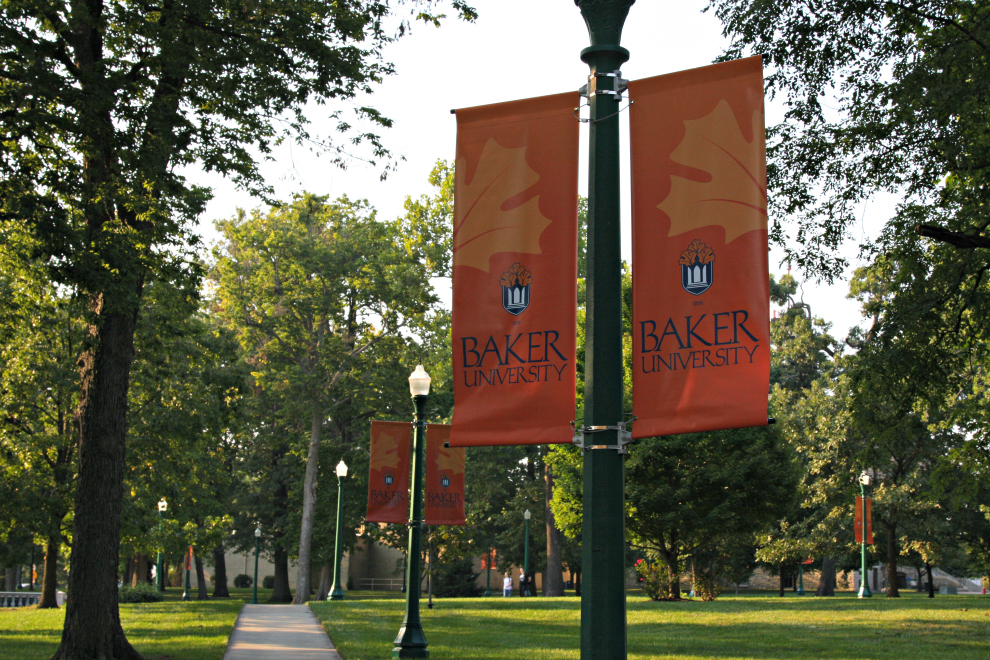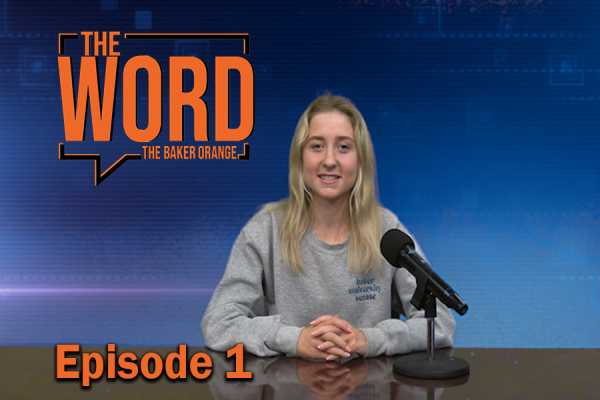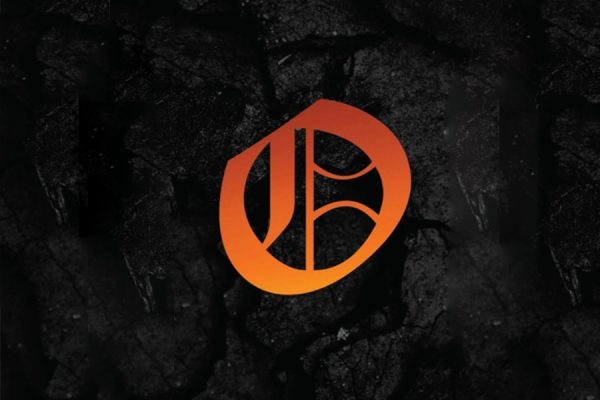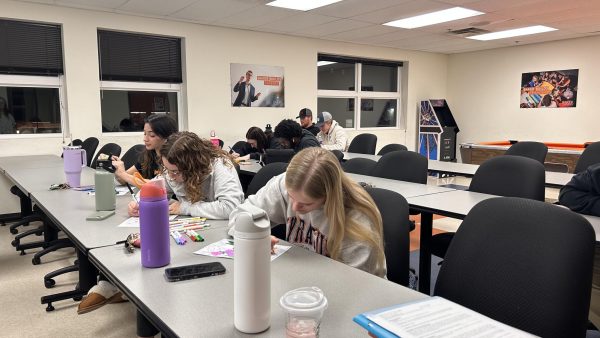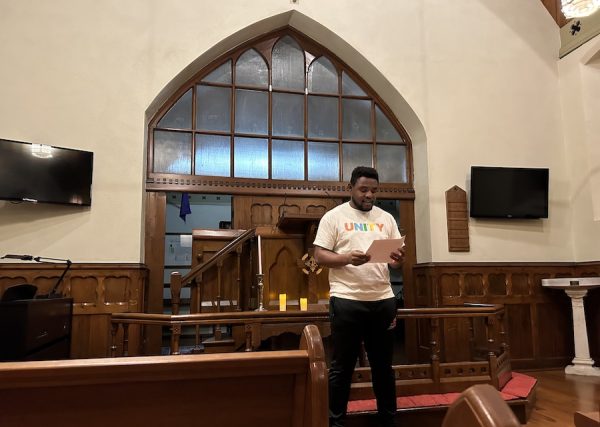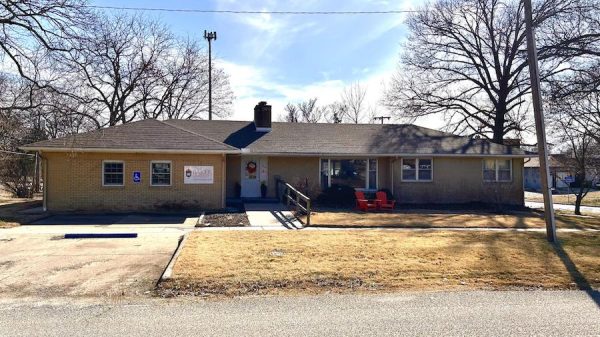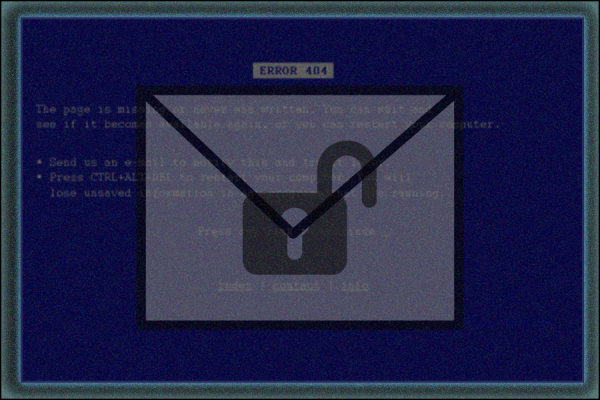Baker University granted continued accreditation with interim monitoring
Baker University successfully completed its HLC visit in November and will be monitored over the next few years as they use feedback to improve.
In November 2021, Baker University participated in its 10-year Comprehensive Evaluation and Reaffirmation Visit with the Higher Learning Commission (HLC). During this process, the university is rigorously evaluated by the HLC in order to uphold a high-quality educational standard. The university has been continuously accredited since 1913 and this year was granted continued accreditation with interim monitoring.
Similar to reaffirmation visits in the past, the university will submit interim reports to the HLC in 2024 and 2026. These reports are submitted to the HLC by the academic deans, the dean of students, the vice president of finance and administration, and the university registrar along with any subcommittees they may form.
The university was given specific guidelines from the HLC to make changes for the sake of overall institutional improvement. Ramie Nation, University Registrar and Advisor to the President for Accreditation explained that the main focus of interim monitoring for this period will be in regards to HLC criterion 2: “Integrity: Ethical and Responsible Conduct.”
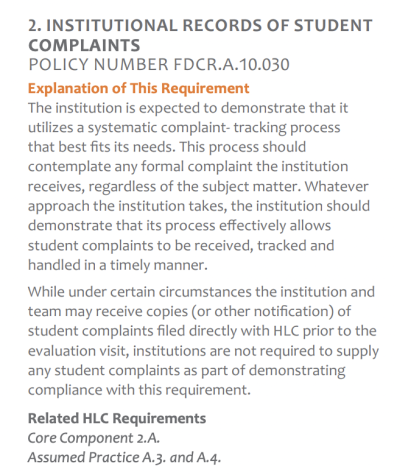
“The overarching theme in this interim monitoring report is consistency across the university with regards to the publication of our mission and values and enforcement of the academic policy,” Nation said. “Currently, the university operates very differently in each college and has many separate publications (catalogs, faculty handbooks, student handbooks, etc.) where policies are included. The HLC would like Baker to unify these policies and ensure our information is presented consistently across all publications as well as on the website.”
As a federally recognized accrediting agency, the HLC is required to ensure that institutions are meeting specific regulations as a part of their recognition by the U.S. Department of Education. In compliance with these Federal Compliance regulations, Baker will also be implementing a new policy for submitting, tracking and utilizing student complaints through Maxient software. This will allow the university to move away from having students file complaints with individual staff or through EthicsPoints and instead create a comprehensive, consistent system. Students across all Baker campuses can expect to see changes to this policy soon.
Additionally, Nation explains that changes will be made to assure the university’s accordance with Criterion 3C specifically at the School of Professional and Graduate Studies. HLC’s final report states “adjunct faculty in SPGS bring valuable workplace experience to the classroom. However, that expertise cannot be expected to extend to curriculum development at the program level or to academic policy issues.”
SPGS recently appointed a new Academic Dean who will review the staffing model and offer suggestions for institutional improvement. Before reporting to HLC about Criterion 3C in 2026, the university will be taking steps to determine the best staffing model as well as to provide sufficient full-time faculty expertise.
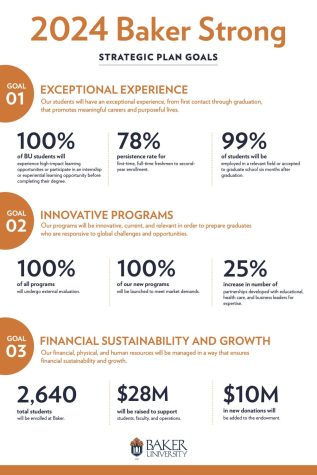
Lastly, Baker will submit another report in 2026 to ensure that the “2024 Baker Strong” Strategic Plan includes a budget model to forecast enrollment and expenses over the next three to five years.
This report is associated with HLC criterion 5B: “The institution’s resource base supports its educational offerings and its plans for maintaining and strengthening their quality in the future.”
Baker’s Strategic Plan outlines three main goals, one of which focuses on long-term financial sustainability and growth. Under this goal, there are three main objectives: raise $28 million for student, faculty and operational support, grow the endowment by $10 million and enroll 2,640 students.
The next HLC reaffirmation for accreditation visit will occur in 2031-2032. Until then, the university will work to accomplish the changes outlined by interim monitoring in hopes of continuing to develop “confident, competent, and responsible contributors to society.”

Emma Howard is a senior and a public health major from Lawrence, Kan. She designs graphics and serves as the social media editor for The Baker Orange....



